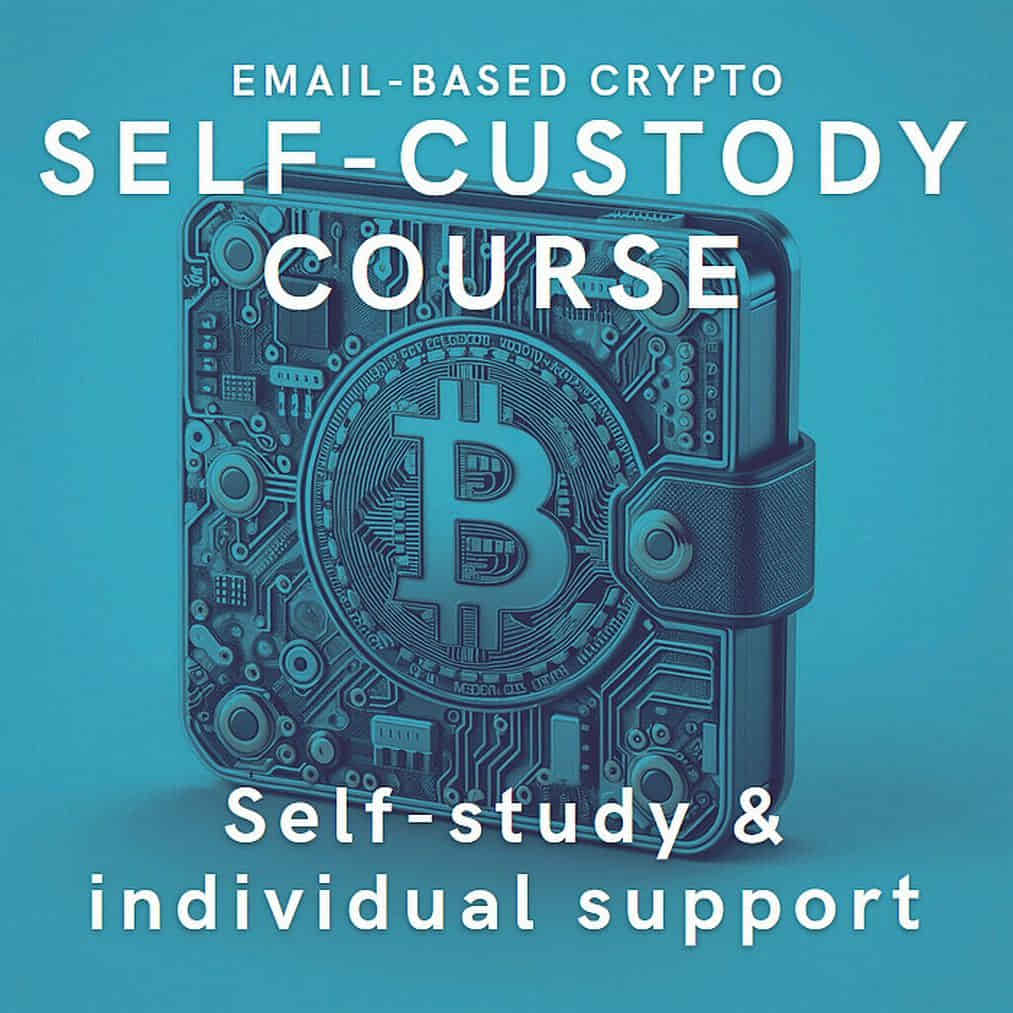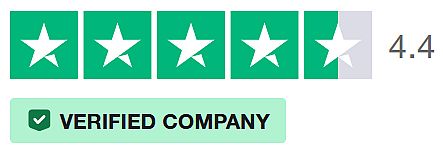
Achieve confident crypto self-custody in just a few weeks
Learn the essentials of self-custody. Find a hardware wallet and backup solution that suits your needs. Securely set up your seed phrase.
Establish a backup solution tailored to your circumstances. Finally, move your coins into self-custody with confidence.
Are you overwhelmed by complexity and technical jargon?
Which features of hardware wallets are important for you?
How to set up a seed phrase and back it up securely?
Are you aware of all risks involved in crypto self-custody?
Our unique approach: Guided self-study and on-demand coaching when you need it.
Master Crypto Self-Custody Step by Step
- No prior crypto or technical knowledge required!
- Breaking down the learning material into weekly tasks
- You only need to invest a few hours every week
- Receive individual support exactly when you need it
- Receive the learning material directly to your email every week
- No account, registering or login needed to access our material
- Receive automatic reminders when you're a little behind
- Find a hardware wallet and backup steel that really fits your needs
- Meet other self-custody learners along the way
Email-Based Crypto Self-Custody Course
This course is all about teaching you self-custody in a simple and time-saving way. Even if you only have a few hours each week, you'll learn exactly what you need to know. Every week, we'll email you easy-to-understand learning material. If you ever miss a lesson, don't worry – we'll send you a reminder to help you catch up. This course is designed to make learning how to keep your cryptocurrencies safe and under your control as straightforward and efficient as possible.
And the best part? Our course offers a unique and effective approach that blends self-study with individualized support, saving you valuable time. Whenever you face a challenge or have a question, just reach out to us. In the dynamic world of cryptocurrency, having direct access to personalized assistance is a game changer. When you send us your queries, we'll provide tailored, easy-to-understand answers to help you move forward efficiently. This approach not only ensures a deeper understanding and practical application of knowledge but also makes your learning experience smoother, faster, and more effective.
- Week 1 - Crypto & Self-Custody Bootcamp
- Week 2 - Choosing Hardware Wallet & Backup Solution
- Week 3 - Self-Custody Matrix
- Week 4 - Security Practices in Crypto
- Week 5 - Setting Up Your Hardware Wallet
- Week 6 - Backing Up Seed and Testing the Wallet
- Week 7 - Transferring Coins into Your Hardware Wallet
Within seven weeks, you'll become confident in self-custody using your own hardware wallet and also establish your own crypto steel backup, following standard best practices.
only a few hours every week
receive directly to your inbox
learn with your own devices
near instant personal support
learn anywhere on the go
no login or password required
no more overwhelm or frustration
no more unanswered questions
no more technical language
Frequently Asked Questions
Which cryptocurrencies are covered in the course?
Currently, our course focuses on Bitcoin self-custody, but we also support major altcoins (must be supported from hardware wallet without third party wallet connection). We're considering expanding our offerings to include altcoins including privacy coins that require hardware wallets in combination with native wallets in the future.
Can I use any hardware wallet for this course?
We recommend a curated selection of hardware wallets known for their reliability and ease of use. You're welcome to choose a wallet outside our list, but please note that our ability to assist with specific setup steps may be limited.
List of our currently supported hardware wallets:
Do I need prior experience with cryptocurrencies?
Not at all! Our course is designed from the ground up to teach you the essentials of secure self-custody, including backup procedures. It's perfect for beginners.
Is it necessary to use real funds to explore the features of my hardware wallet?
No, we offer to provide you with "Test Bitcoin" so you can try all hardware wallet features without using real funds (only available for Trezor).
Is there a limit to personal support during the course?
Every participant is provided with individualized support to navigate the course curriculum, overcome any confusion, or address obstacles encountered. This assistance is available through emails, chat messages, or voice messages. However, we must emphasize that the volume of questions should be kept reasonable, and we cannot allocate time to extensively discuss details or philosophical questions not directly relevant to the course objectives. For those interested in exploring specific topics in depth, we offer a 50% discount on additional coaching sessions throughout the course duration.
What is your refund policy?
If you find it necessary to cancel within the first week of the course, rest assured, you'll receive a full refund. Should you opt to do so during the second week, we can offer a 50% refund. Please note, refunds are not available after the second week.
What if I'm unable to continue the course due to unforeseen circumstances?
We understand that life can be unpredictable. If you need to pause your participation, we'll happily reschedule you for the next available course at no additional cost.
Can I get to know you before I decide to book the course?
Sure, we offer a free 30 minute orientation call: schedule free call
Which payment methods do you accept?
We accept over 300 cryptocurrencies, as well as Lightning and fiat. For payments with Monero or Pirate Chain, we offer a 5% discount.
Do you have additional questions?
Feel free to reach out to us directly via our contact form.
